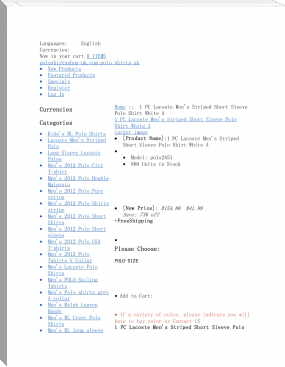The Ghost Kings, H. Rider Haggard [best thriller books to read TXT] 📗

- Author: H. Rider Haggard
Book online «The Ghost Kings, H. Rider Haggard [best thriller books to read TXT] 📗». Author H. Rider Haggard
"Because I am a child in the house of my people, and they will not allow me to leave even for a day," she answered, thinking that this reply would appeal to a race who believe absolutely in obedience to parents and every established authority.
"Is it so?" remarked the old induna who spoke as Dingaan's Mouth--not Mopo, but another. "Now, how can the Inkosazana-y-Zoola, before whom a whole nation will bow, be in bonds to a white Umfundusi, a mere sky-doctor? Shall the wide heavens obey a cloud?"
"If they are bred of that cloud," retorted Rachel.
"The heavens breed the cloud, not the cloud the heavens," answered the induna aptly.
Now it occurred to Rachel that this thing was going further than it should. To be set up as a kind of guardian spirit to the Zulus had seemed a very good joke, and naturally appealed to the love of power which is common to women. But when it involved, at any rate in the eyes of that people, dominion over her own parents, the joke was, she felt, becoming serious. So she determined suddenly to bring it to an end.
"What mean you, Messenger of the King?" she asked. "I am but the child of my parents, and the parents are greater than the child, and must be obeyed of her."
"Inkosazana," answered the old man with a deprecatory smile, "if it pleases you to tell us such tales, our ears must listen, as if it pleased you to order us to be killed, we must be killed. But learn that we know the truth. We know how as a child you came down from above in the lightning, and how these white people with whom you dwell found you lying in the mist on the mountain top, and took you to their home in place of a babe whom they had buried."
"Who told you that story?" asked Rachel amazed.
"It was revealed to the council of the doctors, Lady."
"Then that was revealed which is not true. I was born as other women are, and my name of 'Lady of the Heavens' came to me by chance, as by chance I resemble the Spirit of your people."
"We hear you," answered the "Mouth" politely. "You were born as other women are, by chance you had your high name, by chance you are tall and fair and golden-haired like the Spirit of our people. We hear you."
Then Rachel gave it up.
"Bear my words to the King," she said, and they rose, saluted her with a Bayète, that royal salute which never before had been given to woman, and departed.
When they had gone Rachel went into supper and told her parents all the story. Mr. Dove, now that she seemed to take a serious view of the matter, affected to treat it as absurd, although when she had laughed, his attitude, it may be remembered, was different. He talked of the silly Zulu superstitions, showed how they had twisted up the story of the death of her baby brother, and her escape from the flood in the Umtavuna river, into that which they had narrated to her. He even suggested that the whole thing was nonsense, part of some political move to enable the King, or a party in the state, to declare that they had with them the word of their traditional spirit and oracle.
Mrs. Dove, however, who that night was strangely depressed and uneasy, thought far otherwise. She pointed out that they were playing with vast and cruel forces, and that whatever these people exactly believed about Rachel, it was a dreadful thing for a girl to be put in a position in which the lives of hundreds might hang upon her nod.
"Yes, and," she added hysterically, "perhaps our own lives also--perhaps our own lives also!"
To change the conversation, which was growing painful, Rachel asked if anyone had seen Noie. Her father answered that two hours ago, just before the embassy arrived, he had met her going down to the banks of the stream, as he supposed, to gather flowers for the table. Then he began to talk about the girl, saying what a sweet creature she was, and how strange it seemed to him that although she appeared to accept all the doctrines of the Christian faith, as yet she had never consented to be baptised.
It was while he was speaking thus that Rachel suddenly observed her mother fall forward, so that her body rested on the table, as though a kind of fit had seized her. Rachel sprang towards her, but before she reached her she appeared to have quite recovered, only her face looked very white.
"What on earth is the matter, mother?"
"Oh! don't ask me," she answered, "a terrible thing, a sort of fancy that came to me from talking about those Zulus. I thought I saw this place all red with blood and tongues of fire licking it up. It went as quickly as it came, and of course I know that it is nonsense."
CHAPTER IX(THE TAKING OF NOIE)
Presently Mrs. Dove, who seemed to have quite recovered from, her curious seizure, went to bed.
"I don't like it, father," said Rachel when the door had closed behind her. "Of course it is contrary to experience and all that, but I believe that mother is fore-sighted."
"Nonsense, dear, nonsense," said her father. "It is her Scotch superstition, that is all. We have been married for five-and-twenty years now, and I have heard this sort of thing again and again, but although we have lived in wild places where anything might happen to us, nothing out of the way ever has happened; in fact, we have always been most mercifully preserved."
"That's true, father, still I am not sure; perhaps because I am rather that way myself, sometimes. Thus I know that she is right about me; no harm will happen to me, at least no permanent harm. I feel that I shall live out my life, as I feel something else."
"What else, Rachel?"
"Do you remember the lad, Richard Darrien?" she asked, colouring a little.
"What? The boy who was with you that night on the island? Yes, I remember him, although I have not thought of him for years."
"Well, I feel that I shall see him again."
Mr. Dove laughed. "Is that all?" he said. "If he is still alive and in Africa, it wouldn't be very wonderful if you did, would it? And at any rate, of course, you will one day when we all cease to be alive. Really," he added with irritation, "there are enough bothers in life without rubbish of this kind, which comes from living among savages and absorbing their ideas. I am beginning to think that I shall have to give way and leave Africa, though it will break my heart just when, after all the striving, my efforts are being crowned with success."
"I have always told you, father, that I don't want to leave Africa, still, there is mother to be considered. Her health is not what it was."
"Well," he said impatiently, "I will talk to her and weigh the thing. Perhaps I shall receive guidance, though for my part I cannot see what it matters. We've got to die some time, and if necessary I prefer that it should be while doing my duty. 'Take no thought for the morrow, sufficient unto the day is the evil thereof,' has always been my motto, who am content with what it pleases Providence to send me."
Then Rachel, seeing no use in continuing the conversation, bade him good-night, and went to look for Noie, only to discover that she was not in the house. This disturbed her very much, although it occurred to her that she might possibly be with friends in the village, hiding till she was sure the Zulu embassy had gone. So she went to bed without troubling her father.
At daybreak next morning she rose, not having slept very well, and went out to look for the girl, without success, for no one had heard or seen anything of her. As she was returning to the house, however, she met a solitary Zulu, a dignified middle-aged man, whom she thought she recognised as one of the embassy, although of this she could not be sure, as she had only seen these people in the moonlight. The man, who was quite unarmed, except for a kerry which he carried, crouched down on catching sight of heir in token of respect. As she approached he rose, and gave her the royal salute. Then she was sure.
"Speak," she said.
"Inkosazana," he answered humbly, "be not angry with me, I am Tamboosa, one of the King's indunas. You saw me with the others last night."
"I saw you."
"Inkosazana, there has been dwelling with you one Noie, the daughter of Seyapi the wizard, who with all his house was slain at this place by order of the King. She also should have been slain, but we have learned that you called down lightning from Heaven, and that with it you slew the soldier who had run her down, slew him and burned him up, as you had the right to do, and took the girl to be your slave, as you had the right to do."
"Speak on," said Rachel, showing none of the surprise which she felt.
"Inkosazana, we know that you have come to love this girl. Therefore, yesterday before we spoke with you we seized her as we were commanded, and hid her away, awaiting your answer to our message. Had you consented to visit the King at his Great Place, we would have let her go. But as you did not consent my companions have taken her to the King."
"An ill deed. What more, Tamboosa?"
"This; the King says by my mouth--Let the Inkosazana come and command, and her servant Noie shall go free and unharmed, for is she not a dog in her hut? But if she comes not and at once, then the girl dies."
"How know I that this tale is true, Tamboosa?" asked Rachel, controlling herself with an effort, for she loved Noie dearly.
The man turned towards some bushes that grew at a distance of about twenty paces, and cried: "Come hither."
Thereon from among the bushes where she lay hidden, rose a little maid of about fourteen, whom Rachel knew well as a girl that Noie often took with her to carry baskets and other things.
"Tell now the tale of the taking of Noie and deliver the message that she gave to you," commanded Tamboosa.
Thereon the trembling child began, and after the native fashion, suppressing no detail or circumstance, however small, narrated how the Zulus had surprised her and Noie while they were gathering flowers, and having bound their arms, had caused them to be hurried away unseen to some dense bush about four miles off. Here they had been kept hidden till in the night the embassy returned. Then they had spoken with Noie, who in the end called her and gave





Comments (0)